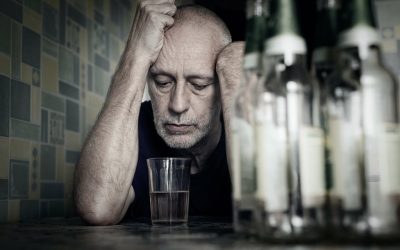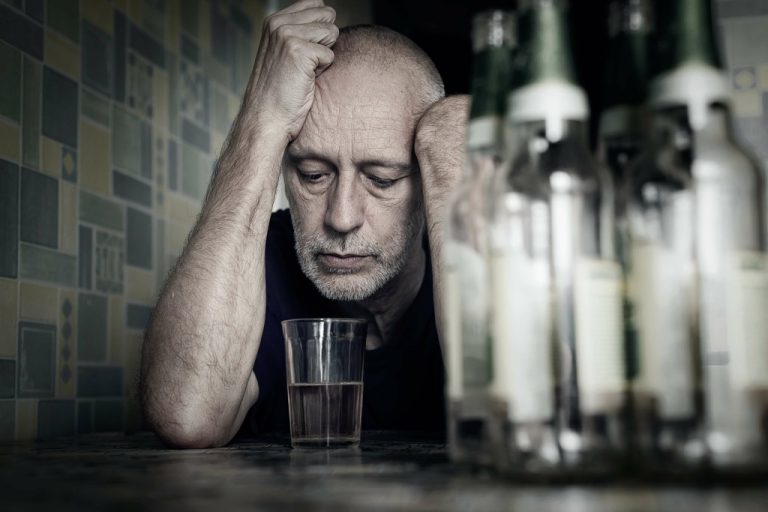Contents
But if you continuously pour the alcohol into the funnel, without taking time to stop or pause, the funnel will overflow. But this protection mechanism alcohol allergy with hives can be overwhelmed once alcohol is in the bloodstream, meaning it doesn’t work properly. And it’s a record of Mesopotamian workers’ beer rations.
Alcohol can act as an irritant, especially in the mouth and throat. Cells that are damaged by the alcohol may try to repair themselves, which could lead to DNA changes that can be a step toward cancer. Men carrying one or two of the low-alcohol tolerability alleles for ADH1B had between 13-25% lower risks of overall cancer and alcohol-related cancers.
A new study looking at blood stem cells uncovered fresh details surrounding the mechanisms by which alcohol raises the risk of developing cancer. Drinking alcohol increases the risk of cancer whether you drink it all in one go or spread it throughout the week. If you drink alcohol, you are more likely to get cancer than if you don’t.

But the link isn’t clear and we don’t know for sure, so we need to wait for more data. Esophageal cancer develops in the esophagus, a long tube that connects your mouth to your stomach. It has been estimated that about 75% of esophageal cancer cases are related to chronic alcohol consumption. While moderate alcohol use may increase cancer risk, the greatest risk occurs with heavy, long-term use. Any reduction in alcohol consumption is a step toward lower risk of cancer.
Alcohol might affect the body’s ability to absorb some nutrients, such as folate. Folate is a vitamin that cells in the body need to stay healthy. Absorption of nutrients can be even worse in heavy drinkers, who often consume low levels of folate to begin with. Low folate levels may play a role in the risk of some cancers, such as breast and colorectal cancer.
Medical
Heavy drinkers, who down two or three drinks every day, are most likely to get cancer and to die from it. Even if you’re a light drinker your chances are still higher than for teetotalers. You probably know that smoking and getting too much sun can give you cancer. But you may not realize the dangers of cancer from tipping back wine, beer, or cocktails.
In theory, it’s possible that alcohol use might raise the risk of recurrence. For example, alcohol can increase the levels of estrogens in the body, which might increase the risk for breast cancer recurrence. But there is no strong evidence from studies to support this. However, some individuals with the defective form of ALDH2 can become tolerant to the unpleasant effects of acetaldehyde and consume large amounts of alcohol.
If you want to cut back, but cannot, notify your healthcare provider. Support groups are also helpful because they allow you to interact with others who understand your feelings. Research shows that alcohol use contributes to 4% of cancer deaths worldwide and 3.5% in the United States . AICR has led the charge in cancer prevention and survivorship for over 30 years. Alcoholic beverages are a concentrated source of calories that can contribute to weight gain. Excess weight and weight gain increase the risk of at least 12 forms of cancer.

“nly 12% reported that they” inform their patients when they’ve been drinking. When the researchers investigated mice without ALDH, they found that alcohol caused four times as much damage to DNA when compared with mice that could produce ALDH. A new study unearths the details of cancer’s relationship with alcohol.
As with Tylenol, alcohol itself isn’t the culprit; it’s acetaldehyde, a known carcinogen. Acetaldehyde is the product of the first of a two-step metabolism of alcohol, each being governed by different enzymes. Alcohol may change how the toxic chemicals from tobacco smoke are broken down in the body, making them even more harmful. Whatever your drinking habits, cutting down will reduce your risk. For a summary of research studies on alcohol and breast cancer,visit the Breast Cancer Research Studies section. Really interesting article with a clear explanation of the current understanding of the relationship between alcohol and cancer.
Acetaldehyde and blood stem cells
Drinking alcohol can also lead to oxidative stress in cells, causing them to create more reactive oxygen species . These can lead to damage inside the cells that might increase the risk of cancer. You can help reduce your risk of cancer by making healthy choices like eating right, staying active and not smoking. It’s also important to follow recommended screening guidelines, which can help detect certain cancers early. The authors said their study reinforces the need to lower population-levels of alcohol consumption for cancer prevention – especially in China. The researchers’ findings were the same when the data were adjusted for other cancer risk factors were like smoking, family history of the disease and diet.
Breast cancer is the most common cancer in the UK and drinking alcohol is one of the biggest risk factors for breast cancer. Around 4,400 breast cancer cases each year are caused by drinking the risks of mixing alcohol and summer heat alcohol. Many studies show women who drink alcohol have an increased risk of breast cancer . He is also studying both the long and short-term effects of exposure to alcohol.
Breast Cancer
The risk increases with the amount of alcohol consumed. Women who drink moderately or excessively regularly face the most risk. World Cancer Research Fund/American Institute of Cancer Research. “Limited suggestive” evidence means results are generally consistent in overall conclusions, but it’s rarely strong enough to justify recommendations to reduce risk of cancer. Limiting alcohol reduces the risk of several types of cancer.
- Drinking less alcohol is better for health than drinking more.
- Powered and implemented by FactSet Digital Solutions.
- To help you live healthier, we’ve taken the latest research and made 10 Cancer Prevention Recommendations.
- Drinking alcohol increases the risk of cancer whether you drink it all in one go or spread it throughout the week.
- Researchers have found that drinking causes chemical and other physical changes in our bodies that make cancers more likely.
Acetaldehyde can cause damage to our cells and can also stop the cells from repairing this damage. Drinking low to moderate amounts of alcohol, however, may be linked to a lower risk of heart disease, high blood pressure and death [23-24]. As well as this, there’s also evidence that alcohol can make it easier for the cancer-causing tobacco chemicals found in cigarettes to get into tissue and cells. And, because alcohol also increases a person’s chances of developing a scarring of the liver known as cirrhosis, it’s thought that this increases their chances of developing liver cancer.
The blue circles indicate the rest of a long DNA strand. Step 1 represents the reaction of the NH2 group with acetaldehyde to form an imine . This step is chemically reversible, as indicated by the double arrow. Well, this is DNA ethylation, which causes the same kind of damage.
Cancer Topics
Formaldehyde and acetaldehyde differ only by one carbon atom. They are both highly chemically reactive and thus, toxic. We cover the latest cancer research, including that funded by the charity.
Decades of Cancer Research
In fact, there are likely several different ways it can raise risk, and this might depend on the type of cancer. Men who drank regularly – despite carrying one copy of the low-alcohol tolerability allele for ALDH2 – had significantly higher risks of head and neck cancer and esophageal cancer. CDC is developing resources on measuring alcohol outlet density to help communities improve the built environment to protect against cancer risk factors. CDC is funding states to study how alcohol affects public healthso they can prevent excessive alcohol use.
This is a very interesting article and attempts to break down the complex subject of alcohol and cancer well. If it is going to be truly balanced however, you should talk about dose and mention that drinking within the government guidelines does not increase your risk of most cancers. We communicate with thousands of parents in particular each year – and a true and balanced picture of alcohols risks and benefits is so important. Even the case on breast cancer is unclear as risk seems to be negated if folate intake is adequate for example, risk is increased if BMI is high, it depends on the type of breast cancer too. Having looked at the evidence in great detail with our medical experts we are very happy communicating the low risk guidelines and feel scaring people who drink moderately is not helpful.
The risk of cancer increases even drinking small amounts of alcohol. Many studies have found a link between alcohol use and the risk of developing effective treatments for alcohol use disorders certain cancers. But it is not clear whether alcohol use after treatment might increase the risk of these cancers coming back .
